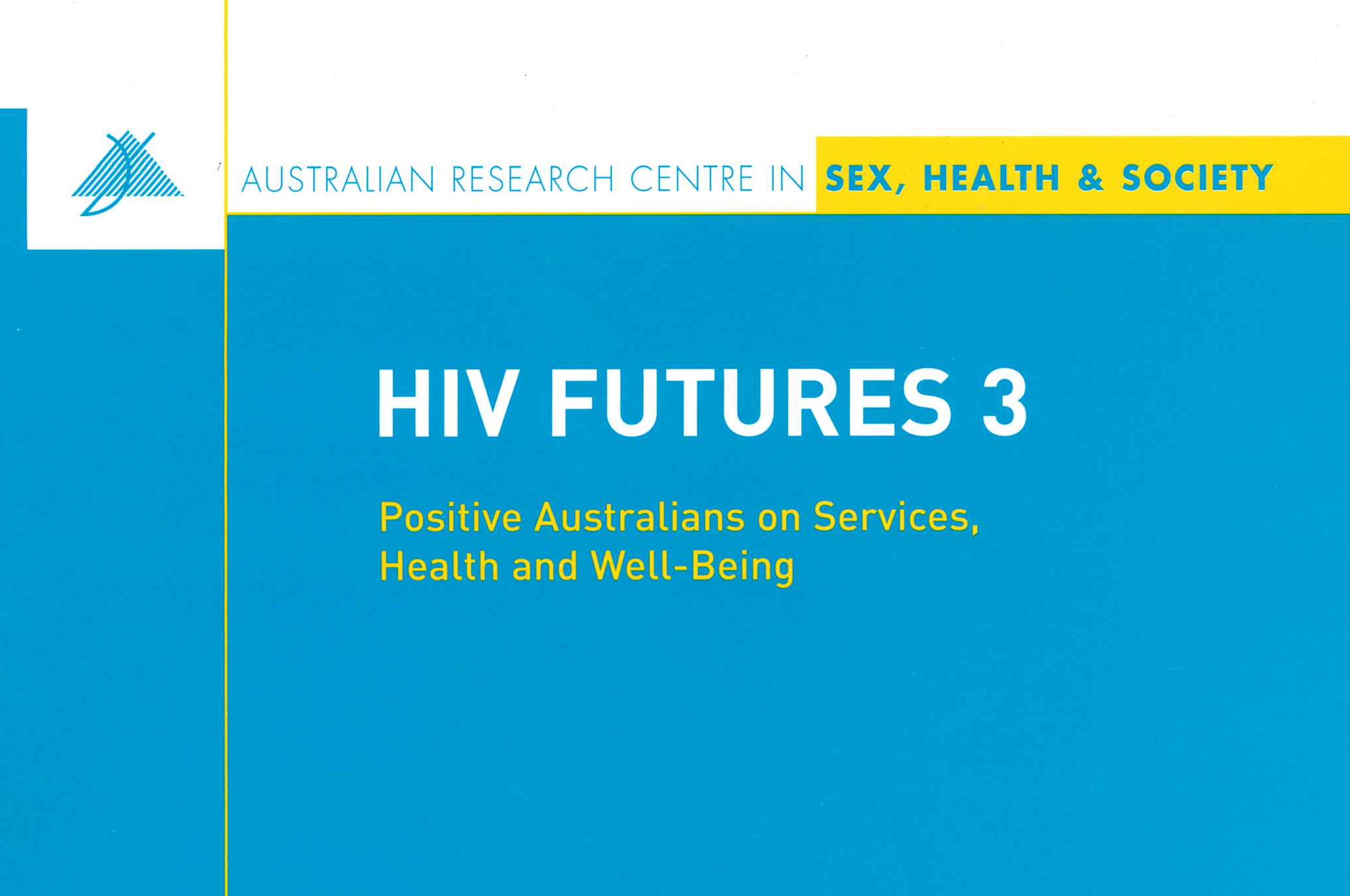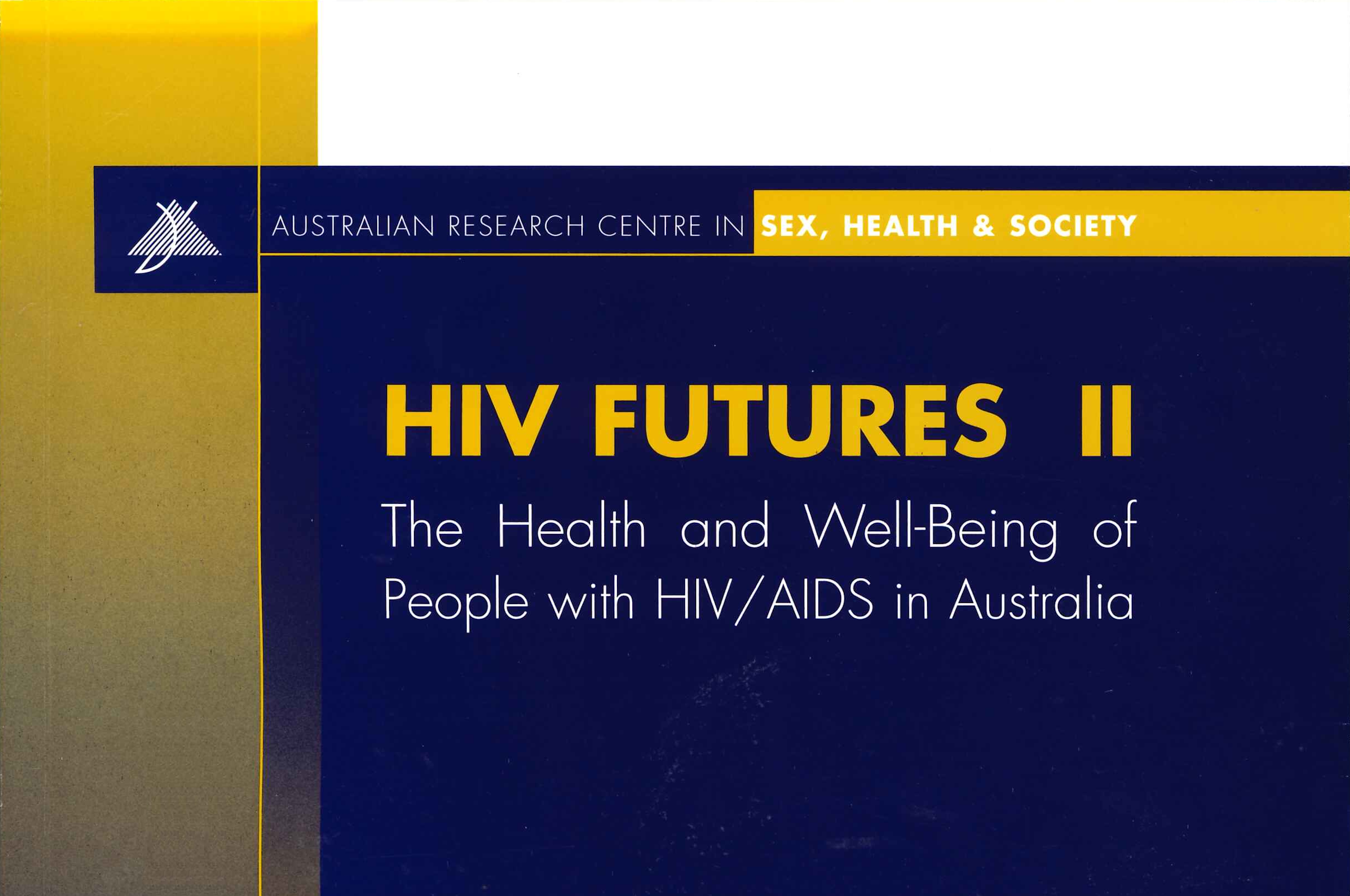HIV Futures publications
HIV Futures is a research series about the health and wellbeing of people living with HIV (PLHIV) in Australia. Each study forms part of a series of cross-sectional surveys that have been run every two to three years since 1997. Funded by the Australian Government Department of Health, the aims of the study are to provide information about factors that support physical and emotional wellbeing among PLHIV.
The study is designed to inform the Australian National HIV Strategy and guide community and clinical service provision for PLHIV. In order to explore the complexity of factors that support health and wellbeing among PLHIV, the HIV Futures series surveys a broad range of issues, such as financial security, housing status, antiretroviral treatment use, general health issues, stigma and discrimination, clinical and support service use, aging, drug and alcohol use, sexual health, relationships, and social connectedness.
If you have any difficulty accessing these documents, please email arcshs@latrobe.edu.au.
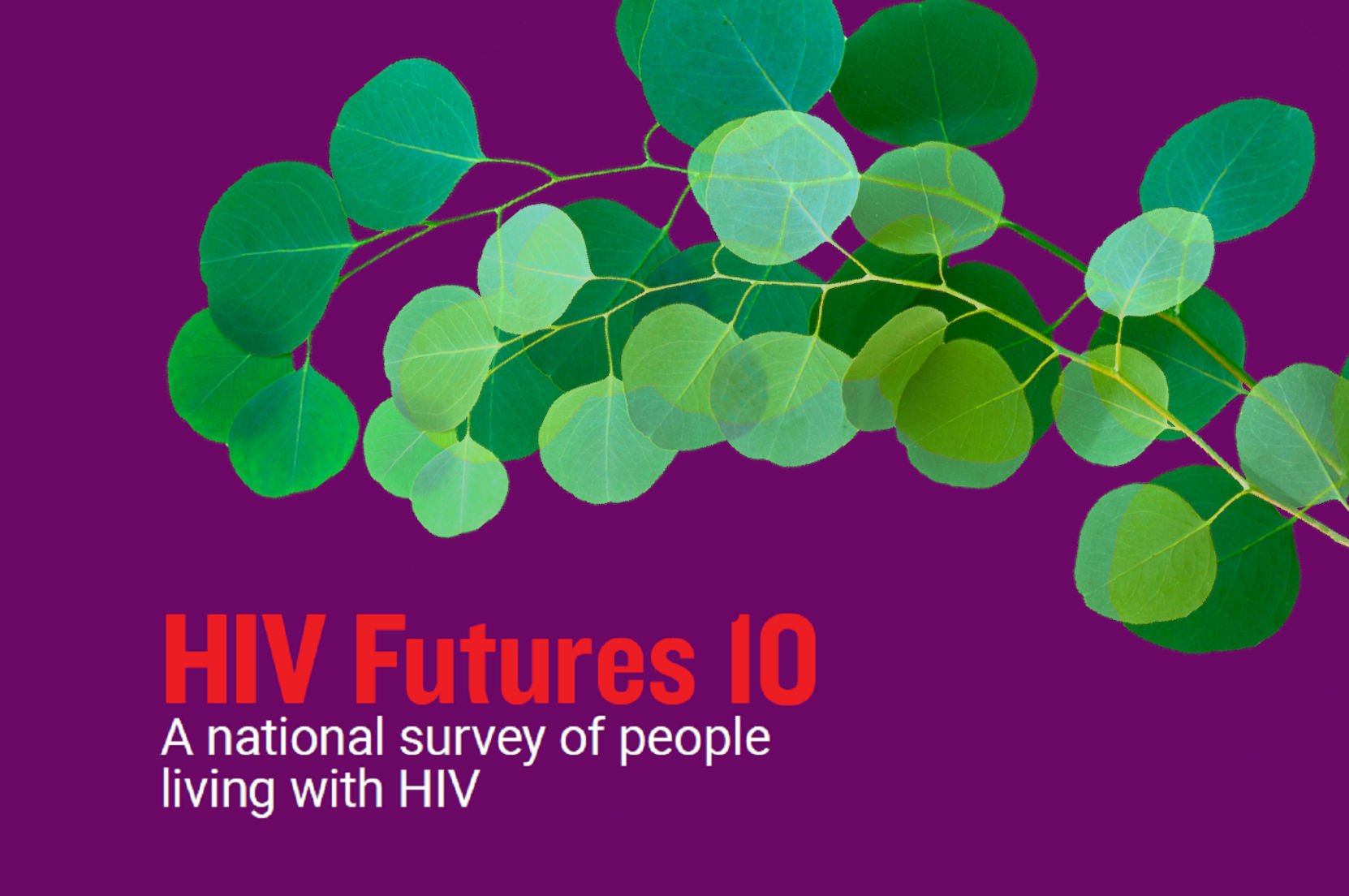
HIV Futures 10
2022
Quality of life among people living with HIV in Australia
Thomas Norman, Jennifer Power, John Rule, Jimmy Yu-Hsiang Chen, Adam Bourne
Download the HIV Futures 10 key findings summary PowerPoint slide pack
HIV Futures 10 is a study of quality of life among people living with HIV (PLHIV) in Australia. In each iteration of the HIV Futures study, a cross sectional survey of the Australian population of PLHIV is conducted. Data were collected for HIV Futures 10 from mid-2021 to early 2022.
For more information about HIV Futures 10, visit the HIV Futures 10 project page.
HIV Futures 9
2019
Quality of life among people living with HIV in Australia
Jennifer Power, Stephanie Amir, Graham Brown, John Rule, Jen Johnson, Anthony Lyons, Adam Bourne and Marina Carman
HIV Futures 9 (PDF, 7.4MB)
Executive summary (PDF, 0.7MB)
HIV Futures 9 is a study of quality of life among people living with HIV (PLHIV) in Australia. In each iteration of the HIV Futures study, a cross sectional survey of the Australian population of PLHIV is conducted. Data were collected for HIV Futures 9 from December 2018 until May 2019. Participants completed a questionnaire using a self-complete online or hardcopy form. The survey instrument comprised 148 questions related to quality of life, financial security, health, wellbeing, treatment, support, sex, relationships, HIV-related stigma, and ageing.
HIV Futures: Community Impact Report
2018
Research Impact and the Australian HIV Response
Jen Johnson
Research Impact and the Australian HIV Response (PDF, 0.3MB)
This case study report explores the role of ARCSHS' HIV Futures series in the Australian HIV partnership response. Through in-depth interviews, citation analysis, and publication review, it examines how the HIV Futures publications have been used by the HIV sector (especially the community-based HIV sector) in informing policy development, advocacy work and service delivery. It explores the themes and topics which have had the most significant influence – and been of most use – to those in the HIV sector. Discussions were held with people working in diverse roles, including peer support, policy, community programs, advocacy, prevention campaigns, support services, and two former directors of PLHIV organisations.
HIV Futures 8
2016-2018
HIV Futures 8 was released as a series of broadsheets:
Health and wellbeing of people living with HIV (PDF, 0.2MB)
Experiences of antiretroviral treatment (PDF, 0.3MB)
HIV exposure and testing (PDF, 0.3MB)
Women Living with HIV in Australia (PDF, 0.2MB)
Service use, social support and connection among people living with HIV (PDF, 0.5MB)
Financial security among people living with HIV in Australia (PDF, 0.3MB)
HIV Futures 7
2013
The Health and Wellbeing of HIV Positive People in Australia
Jeffrey Grierson, Marian Pitts and Rachel Koelmeyer
HIV Futures 6
2009
Making positive lives count
Jeffrey Grierson, Jennifer Power, Marian Pitts, Samantha Croy, Thomas Clement, Rachel Thorpe and Karalyn McDonald
HIV Futures 5
2006
Life as we know it
Jeffrey Grierson, Rachel Thorpe and Marian Pitts
HIV Futures 4
2004
State of the [Positive] Nation
Jeffrey Grierson, Rachel Thorpe, Mark Saunders and Marian Pitts
HIV Futures 3
2002
Positive Australians on Services, Health and Well-Being
Jeffrey Grierson, Sebastian Misson, Karalyn McDonald, Marian Pitts and Mary O’Brien
HIV Futures 2
2000
The Health and Well-being of People with HIV/AIDS in Australia
Jeffrey Grierson, Michael Bartos, Richard de Visser and Karalyn McDonald
HIV Futures Community Report (HIV Futures 1)
1998
Health, Relationships, Community, and Employment
Douglas Ezzy, Richard de Visser, Michael Bartos, Karalyn McDonald, Darryl O'Donnell and Doreen Rosenthal
HIV Futures Community Report (PDF, 0.05MB)
The first HIV Futures Survey drew together the largest sample of people with HIV/AIDS to have been surveyed in Australia at that time, and was conducted from 1 July 1997 to 5 September 1997. The 925 respondents represented over eight percent of the population of people then living with HIV in Australia. While a substantial number of the participants were gay men living in Sydney, the survey included significant numbers of people living with HIV from smaller sub-populations such as women, rural respondents and people living outside NSW and Victoria.
The survey examined five main issues: health (focused on the anti-retroviral treatments that had recently become available), relationships (including the changing nature of relationships with family, friends and partners, and sexual practice), community life (including HIV/AIDS-related organisations and publications), finances (experience of poverty and changes in accommodation), and employment (movement in and out of the work force).
The study was endorsed and supported by the Australian AIDS Federation Organisation (AFAO) and the National Association of People Living With HIV/AIDS (NAPWA), with assistance from over 75 organisations, government departments, hospitals, clinics and individuals across Australia. The report was supported by a Commonwealth AIDS Research Grant.
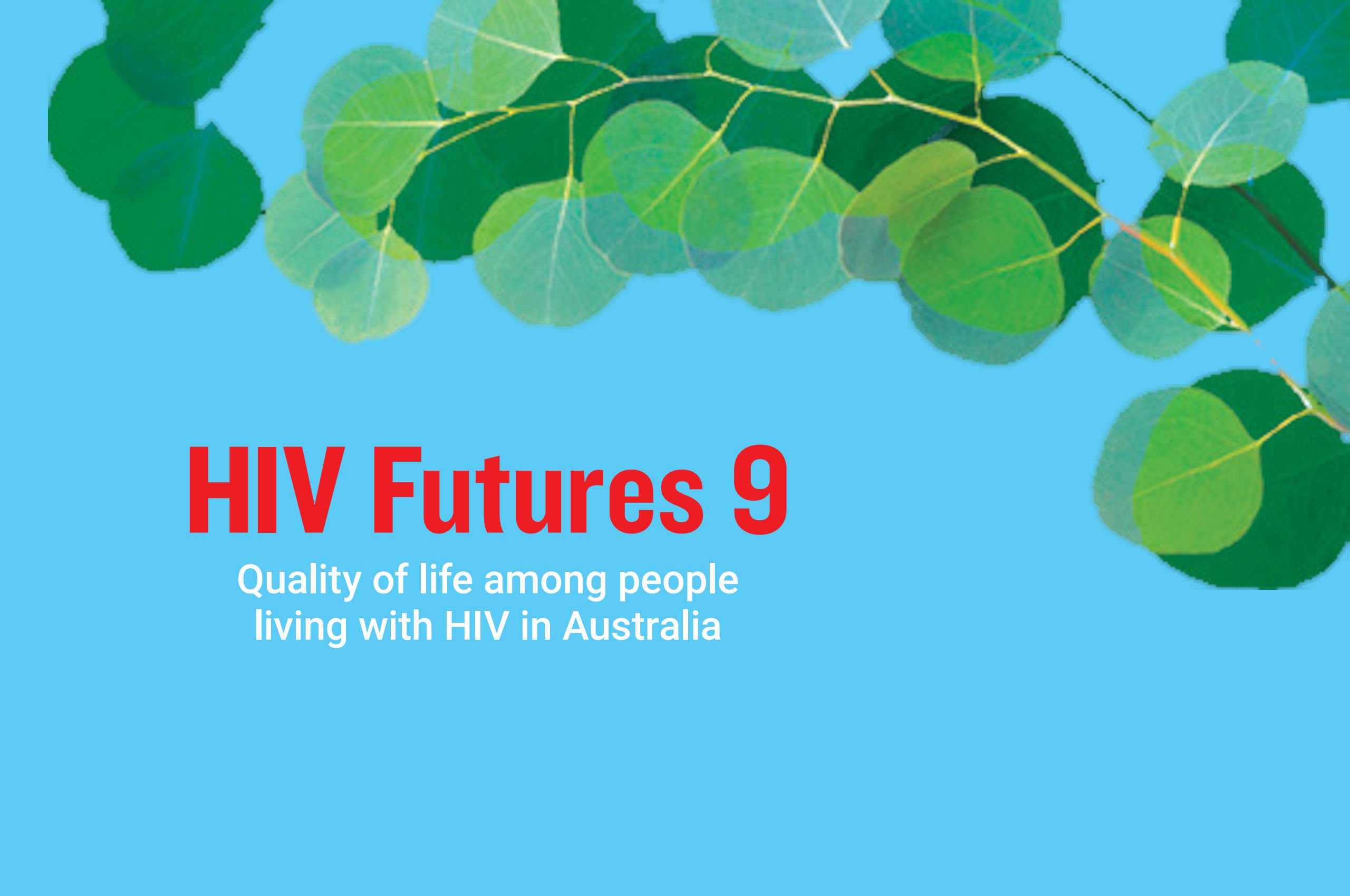
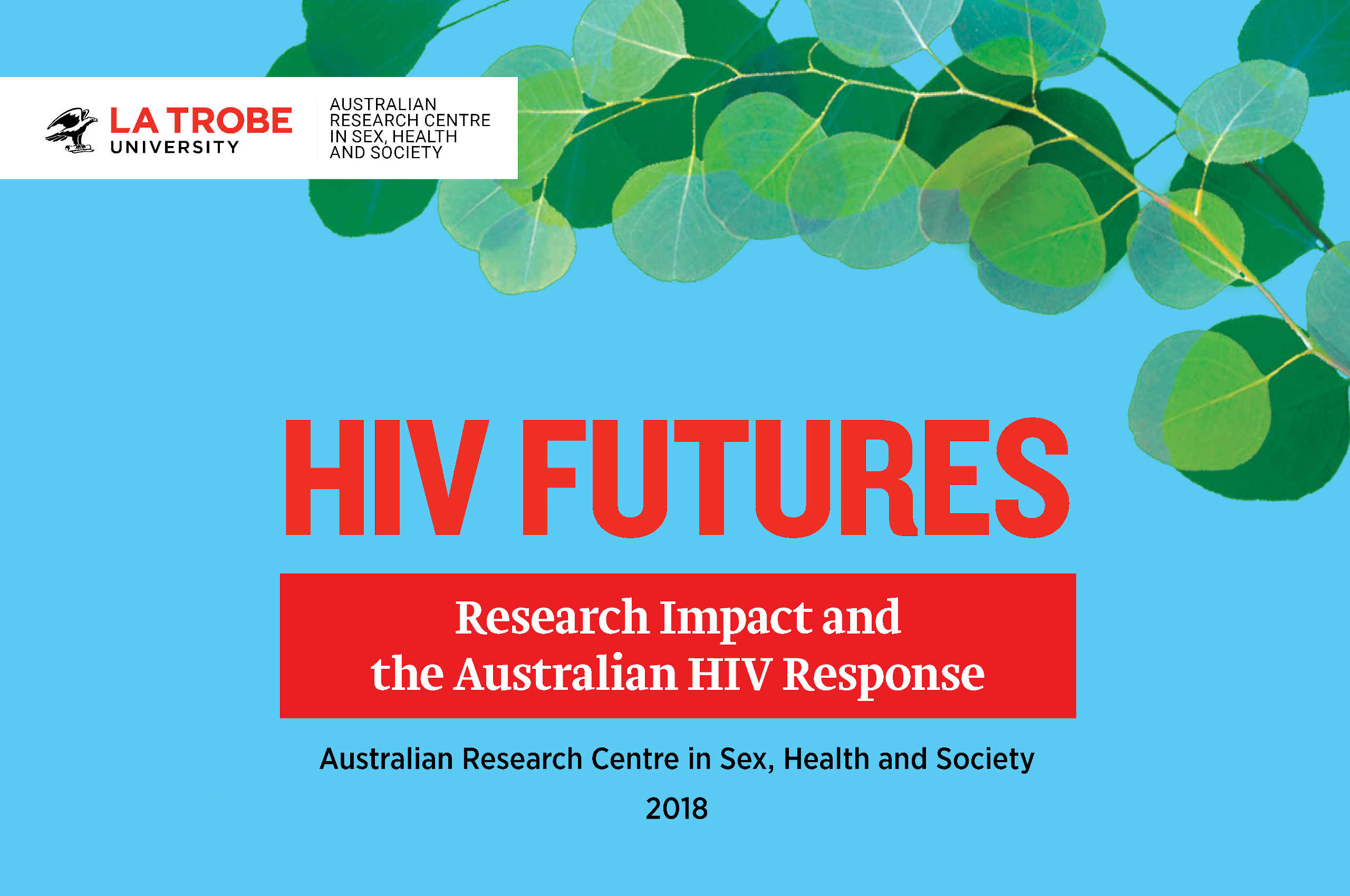



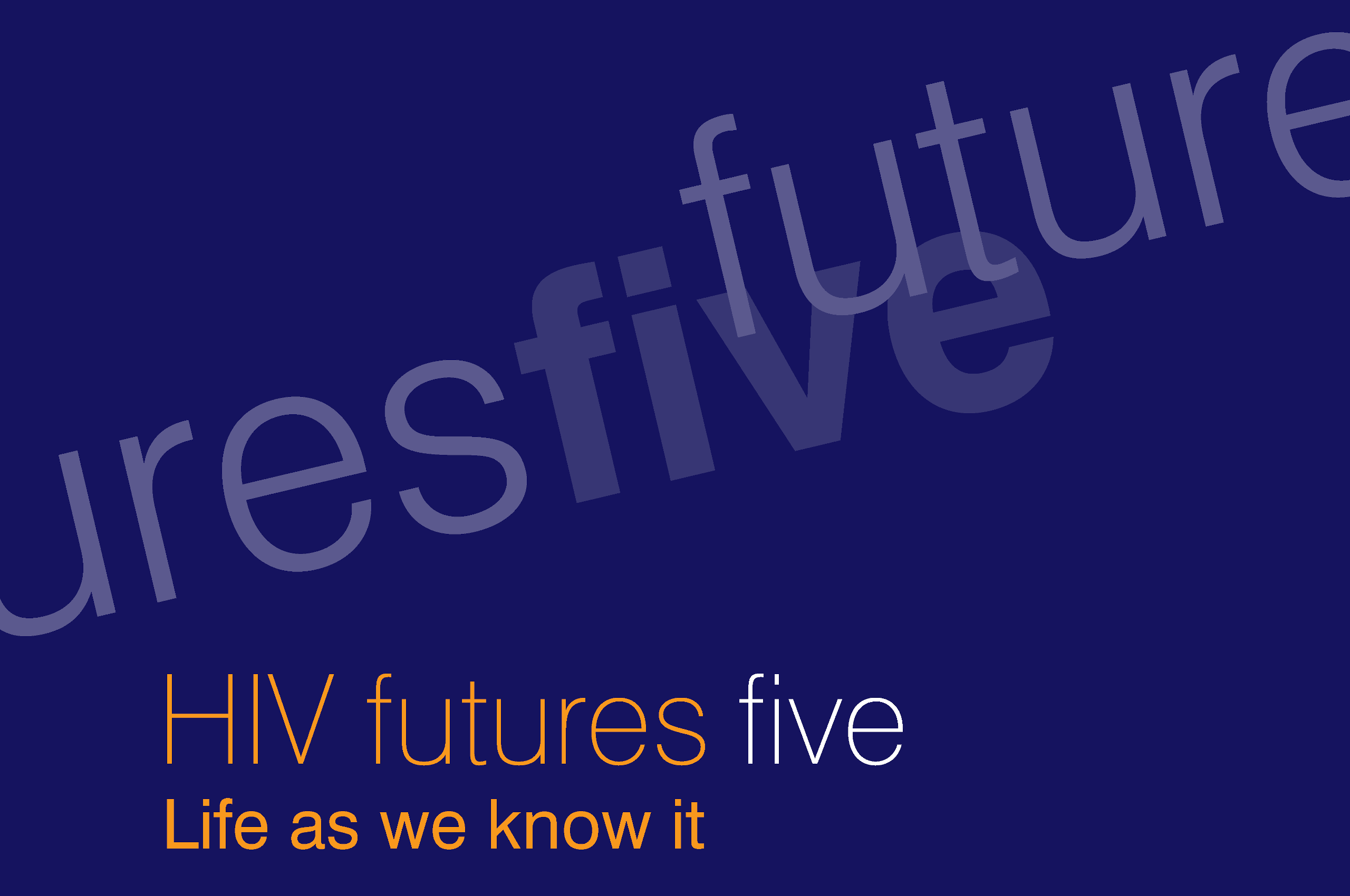
![HIV Futures 4 cover with orange design and 'HIV FUTURES 4: STATE OF THE [POSITIVE] NATION' text](https://www.latrobe.edu.au/arcshs/images/HIV-Futures-4-cover.png)
